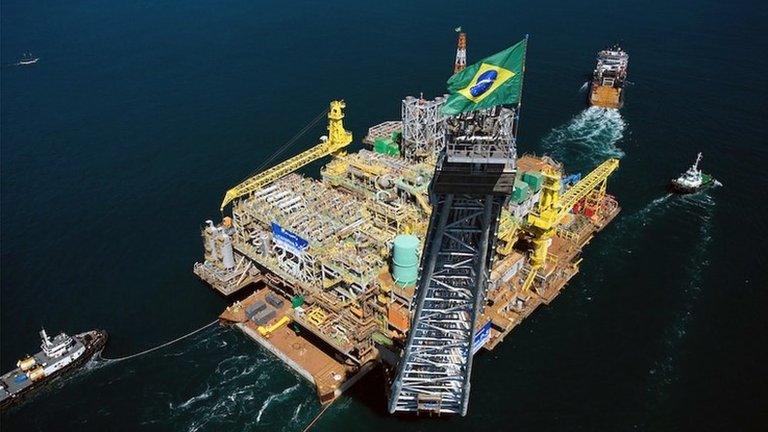Brazil's Black Blocs and black gold
- Published
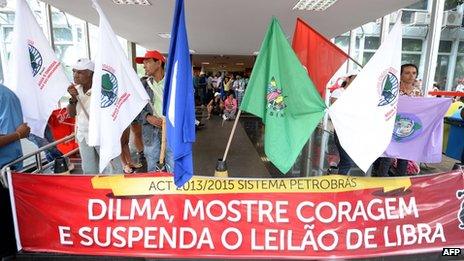
Demonstrators have urged President Dilma Rousseff to suspend the Libra oil field auction
The weather has been pretty inclement in the south-eastern corner of Brazil over the last couple of weeks.
Temperatures fluctuate wildly from one day to the next. Dark clouds roll menacingly across the sky and we have had several consecutive days of heavy rain in Rio de Janeiro area.
As we move, moodily from one season into the next - there is a similarly dark, tempestuous mood on the streets.
I have written on these pages recently about the infamous Black Blocs, how they regularly seem to hijack legitimate and largely peaceful political protests by teachers, state employees and others with a grievance in these volatile days.
Now the Black Blocs have spied another target, the high-profile and high-stakes auction to sell off the rights to develop the immense offshore Libra oil field.
Time of upheaval
It is somewhat unfortunate for the Brazilian government that the Libra sell-off has been scheduled right in the middle of this period of social upheaval that has blighted Rio and other Brazilian cities of late.

Extra security has been deployed on the beachfront to guard the auction
With only eight months to go before the World Cup, for the government to order the army onto the streets of Barra de Tijuca (the coastal strip to the west of Rio) is not a decision that will have been taken lightly.
Riot police breaking up violent demonstrations is one thing but armed troops protecting the hotel where the Libra auction is taking place is another.
They will provide images that Brazilian authorities would frankly rather the world did not see at such a critical moment.
Workers from the state oil company, Petrobras, are out on strike over the bidding process - saying that Brazil is preparing to sell off its most valuable assets.
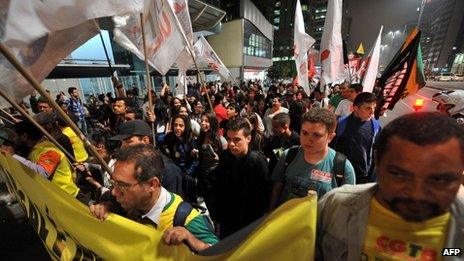
Oil workers have downed tools in protest at the auction
That is, arguably, pretty far from the truth.
Whoever wins the bidding process - almost certainly the company that is prepared to offer the highest proportion of profits to the Brazilian exchequer - will be required to pay an immediate up-front bonus of $5bn (£3.1bn) to the government.
It will also have to operate its licence under pretty strict conditions, including a 70-30 partnership with Petrobras, in whose name all of the extraction of oil will be done.
The head of Brazil's state petroleum agency, Magda Chambriard, is reported to have once said that she had hoped at least 40 international companies would join the Libra bid - paying an amuse-bouche of $1m each just to be at the table.

ANP head Magda Chambriard had high hopes for the auction
In the end, only nine bidders stumped up the cash, among them three consortia from China for whom the availability of oil and access to Brazil's vast reserves is the important thing, not necessarily the price.
Undefined anger
No-one really knows who the Black Blocs are.
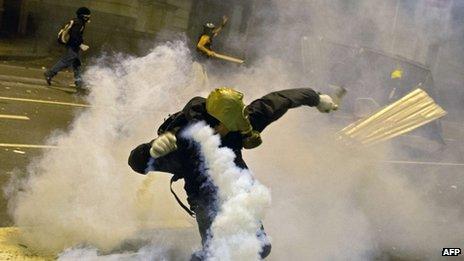
Black Bloc members have clashed with police at demos across the country
In an interview earlier this week with a Brazilian newspaper, one member of the Black Blocs was reported to have admitted they did not really yet know what they were protesting for but they were incredibly angry with so many things in Brazilian society today.
Selling off Brazilian oil to foreigners fits that bill quite nicely but it is so much more complicated.
Brazil cannot do this on its own. Apart from its own financial and structural "issues", Petrobras doesn't really have the technology or expertise to develop Libra - a deep, offshore find under kilometres of rock and salt.
Several foreign firms, large and small, are already active in Brazil, investing hundreds of millions of dollars to help turn Brazil into a major oil exporter.
The billions, even trillions of dollars that Brazil would start to earn if and when Libra comes on line, should help to boost Brazil's once dynamic and recently laboured economy.
But it would also hide a multitude of sins and ills. Corruption, inefficiency, bureaucracy and waste are still rampant in parts of Brazilian life and society.
Many believe that is what the Black Blocs and this government, which wants to get re-elected next year, should really be railing against.
- Published21 October 2013
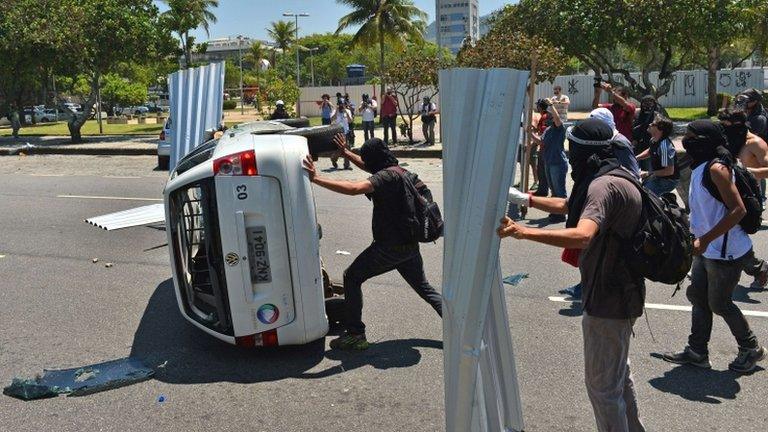
- Published18 October 2013
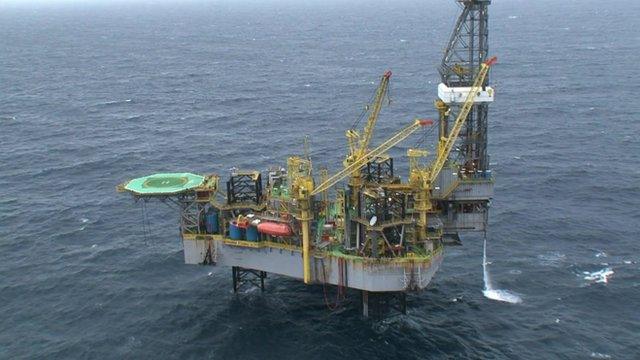
- Published18 October 2013
